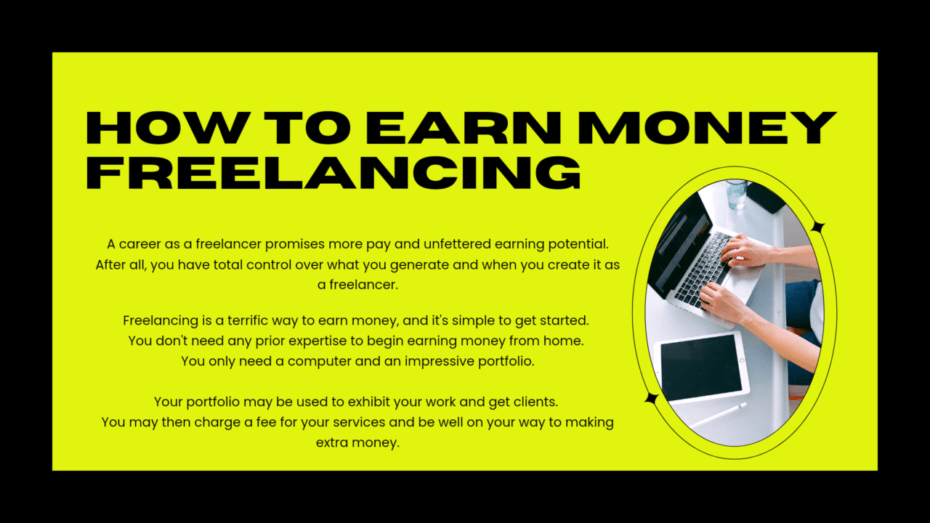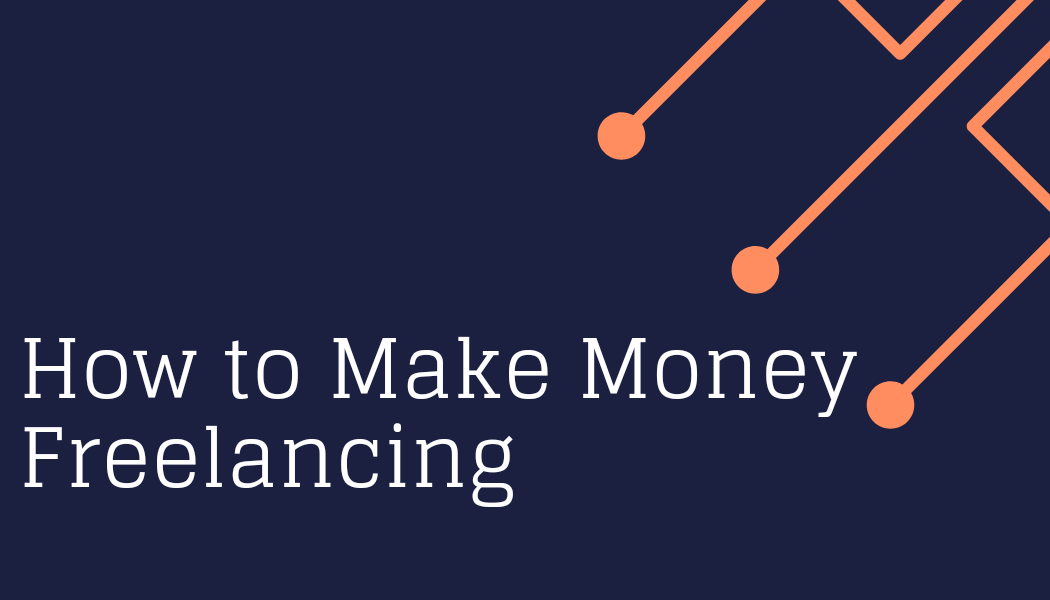Disclosure: This post contains affiliate links, which means that if you click on them and make a purchase, I will receive a commission. Read our Disclaimer for More.
Freelancing has emerged as a beacon of opportunity in today’s gig economy, but where does one begin? How do you navigate the vast sea of freelancing platforms, and what are the key steps to standing out among millions of freelancers worldwide? These are the pressing questions that many aspiring freelancers ponder as they stand on the threshold of this exciting yet daunting venture.
In this guide, we delve into the essence of freelancing, offering a clear, comprehensive path for beginners. From understanding the foundational elements of freelance work to mastering the art of attracting clients, we cover all you need to know to kickstart your freelancing journey. My suggestion for newcomers is to view freelancing not just as a series of jobs but as a platform for professional growth and personal freedom.
Embrace the Freelancing Revolution: Start Your Journey Today
Have you ever wondered how the freelancing revolution could change your life? In today’s digital age, freelancing has become a beacon of opportunity for millions seeking flexibility, autonomy, and the chance to do what they love. The key to thriving in this revolution lies not just in possessing skills, but in how you market those skills, manage your workload, and build meaningful relationships with clients.
In my view, embracing the freelancing revolution starts with understanding its core. Freelancing allows you to work on your terms, choose projects that excite you, and set your own hours. Most importantly, it offers the freedom to craft a career path that aligns with your personal and professional goals. However, success in freelancing doesn’t happen overnight. It requires dedication, strategic planning, and continuous learning to stay ahead in a competitive marketplace.
Understanding the Basics: What is Freelancing?
What exactly is freelancing, and why is it becoming increasingly popular? At its core, freelancing is about offering your skills and services on a project-by-project basis, without being tied to a single employer. It’s the epitome of flexibility and independence in the workforce. From my point of view, the allure of freelancing lies in its ability to offer work-life balance, autonomy, and the opportunity to pursue a variety of projects.
In my opinion, the first step to becoming a successful freelancer is to understand the responsibilities that come with this freedom. This includes managing your own schedule, finding and retaining clients, and ensuring the quality of your work meets or exceeds expectations. Most importantly, it’s about creating a personal brand that resonates with your target audience.
According to industry experts, freelancing is not just a trend but a shift in how work is being done globally. This shift demands adaptability, continuous learning, and a proactive approach to seeking opportunities. In my estimation, those who embrace these aspects of freelancing are the ones who thrive.
Setting Up for Success: Essential Tools and Platforms
How can you set yourself up for success in the freelancing world? The answer lies in leveraging the right tools and platforms that not only help you find work but also manage projects and communicate with clients effectively. From my perspective, a robust online presence on freelancing platforms like Upwork, Freelancer, or Fiverr is crucial for showcasing your skills and connecting with potential clients.
I strongly believe in the power of project management and communication tools such as Trello, Slack, and Zoom. These tools facilitate smooth collaboration with clients and help keep projects on track. Moreover, financial management tools like QuickBooks or FreshBooks are essential for tracking your earnings, expenses, and invoicing clients professionally.
From my point of view, the right set of tools can make a significant difference in how efficiently and effectively you manage your freelancing business. My recommendation for newcomers is to explore various tools and platforms, find what works best for you, and integrate them into your workflow. This strategic approach can help streamline your processes, enhance your productivity, and ultimately, contribute to your success in the freelancing revolution.
Crafting Your Freelancing Identity: Stand Out and Attract Clients
“Your brand is what people say about you when you’re not in the room.” – Jeff Bezos. In the realm of freelancing, your identity is your brand, and crafting it with care is paramount to standing out and attracting the right clients. The journey to establishing a strong freelancing identity involves not just showcasing your skills but also communicating your unique value proposition in a way that resonates with potential clients.
In my opinion, the first step to crafting your freelancing identity is to reflect on what sets you apart from others in your field. This could be your unique skill set, your work ethic, or even the niche you cater to. From my point of view, it’s crucial to articulate this unique selling proposition clearly in all your communications, including your freelancer profile, proposals, and direct communications with clients. This clarity helps potential clients understand why they should choose you over others.
Most importantly, consistency in your messaging and visual branding across all platforms can significantly enhance your freelancing identity. From the colors and fonts you use on your website to the tone of voice in your emails, every element should align with your personal brand. My recommendation for freelancers is to invest time in creating a professional and memorable identity that stands out. This strategic approach not only attracts clients but also builds trust and credibility.
The Art of Crafting a Compelling Freelancer Profile
“A personal brand is a lifelong project that constantly evolves and changes.” – Elon Musk. In the context of freelancing, your profile is the cornerstone of your personal brand. Crafting a compelling freelancer profile is about more than listing your skills and experiences; it’s about telling a story that engages potential clients and makes them want to learn more about you.
I believe that the key to a compelling profile is authenticity. Let your personality shine through your profile description, and don’t be afraid to share your passion for your work. From my perspective, clients are not just looking for skills; they’re looking for a person they can trust and enjoy working with. Including testimonials or case studies can further bolster your profile, providing concrete evidence of your expertise and the quality of your work.
A well-crafted profile also highlights your professional achievements and certifications, making it easy for clients to gauge your expertise. My suggestion is to regularly update your profile to reflect your latest projects and skills, as this demonstrates your commitment to growth and learning. Remember, a dynamic profile is a reflection of a dynamic professional.
Mastering Freelancing Platforms: Tips and Tricks for Newcomers
“Success is the result of perfection, hard work, learning from failure, loyalty, and persistence.” – Colin Powell. For freelancers, mastering the use of freelancing platforms is critical to finding success in the gig economy. These platforms are not just marketplaces for work; they are ecosystems that, if navigated wisely, can offer endless opportunities.
I recommend newcomers take the time to thoroughly understand how their chosen platforms work. This includes the algorithms that match freelancers with potential clients, the bidding process, and the importance of reviews and ratings. Success on these platforms is a mix of visibility, credibility, and networking. Therefore, optimizing your profile for search, actively engaging with the community, and delivering high-quality work on time are crucial steps.
From my perspective, one of the most overlooked aspects of mastering freelancing platforms is the power of networking. I strongly believe in the value of connecting with other freelancers and potential clients through forums and community groups within these platforms. These connections can lead to valuable advice, referrals, and even direct project offers. In my view, while the competition on freelancing platforms can be intense, there is also a wealth of opportunity for those who are willing to put in the effort to stand out and connect authentically with the community.
Winning Strategies to Secure Your First Freelancing Clients
Did you know that the majority of freelancers find their first client through networking and personal connections? This statistic underscores the importance of a strategic approach to networking and proposal writing in the early stages of your freelancing career. Securing your first freelancing clients is pivotal, as it sets the stage for future success and builds the momentum needed to sustain and grow your freelancing business.
In my experience, winning your first clients requires a blend of visibility, credibility, and communication. First and foremost, it’s essential to be where potential clients are looking for talent. This means having a strong online presence across freelancing platforms, social media, and possibly your own website. Showcasing your skills and expertise through content creation can also significantly boost your visibility and attract potential clients.
Most importantly, I recommend focusing on building relationships rather than just making sales. Engage with potential clients and your wider network in a meaningful way. Attend industry events, participate in online forums, and connect with fellow freelancers. These activities not only increase your visibility but also establish your reputation as a knowledgeable and reliable professional in your field.
Networking and Marketing: Building Your Freelancing Brand
“Your network is your net worth.” This adage holds particularly true in the freelancing world, where building a strong personal brand can significantly impact your ability to attract and retain clients. Networking and marketing are not just about promoting your services; they are about creating genuine connections and demonstrating your value to potential clients.
From my point of view, effective networking involves being proactive in industry-related communities both online and offline. Joining professional groups on LinkedIn, participating in discussions, and sharing your insights can establish you as an authority in your field. Similarly, attending workshops, webinars, and conferences can not only expand your knowledge but also your professional network.
In my estimation, marketing your freelancing services should be approached with a focus on solving problems for your clients. Highlight how your unique skills and experiences can address their specific challenges. Personal branding, through a professional website or blog, can also play a crucial role in telling your story and showcasing your portfolio. My suggestion is to maintain a consistent message and visual identity across all your marketing materials to reinforce your brand and make it memorable.
Crafting Winning Proposals: Tips to Get Noticed
The art of crafting a winning proposal cannot be overstated in its importance to a freelancer’s success. A compelling proposal not only demonstrates your understanding of the client’s needs but also highlights your unique value proposition. According to my experience, the key to a successful proposal is customization; a one-size-fits-all approach rarely captures the attention of discerning clients.
From my perspective, the first step in crafting a winning proposal is thorough research. Understand the client’s industry, their company culture, and the specific project requirements. This allows you to tailor your proposal to speak directly to their needs, showing that you are not just a freelancer but a partner in their project’s success.
Most importantly, I believe that clarity and conciseness in your proposals are critical. Clients appreciate proposals that are straightforward and easy to understand, with a clear outline of the project scope, your approach, and the expected outcomes. Including relevant examples of past work that demonstrate your ability to deliver similar results can significantly strengthen your proposal. In my recommendation, always conclude with a call to action that invites further discussion, signaling your eagerness to engage and collaborate on the project.
Elevating Your Freelancing Skills: Continuous Learning and Growth
Much like a garden requires constant care and nourishment to flourish, your freelancing career thrives on continuous learning and skill enhancement. In the rapidly evolving marketplace, the ability to adapt and grow your skill set is not just an advantage; it’s a necessity. This dynamic landscape demands a commitment to learning and personal development to stay relevant and competitive.
In my experience, the foundation of elevating your freelancing skills lies in identifying core competencies and areas for improvement. Whether it’s honing your technical skills, improving your communication abilities, or mastering time management, focusing on these key areas can significantly impact your freelancing success. From my perspective, self-assessment tools and feedback from clients can be invaluable in this process, offering insights into your strengths and areas where you can improve.
Most importantly, I suggest setting clear goals for your learning journey. Whether it’s learning a new software, mastering a language, or understanding a new market trend, having specific objectives can help keep you focused and motivated. From my point of view, this goal-oriented approach to learning not only enhances your skill set but also boosts your confidence and marketability as a freelancer.
Essential Freelancing Skills for Success in Any Field
In the freelancing world, certain skills transcend the boundaries of specific fields, acting as the bedrock of success across various disciplines. Communication, for instance, is paramount. The ability to articulate ideas clearly, negotiate contracts effectively, and manage client expectations can set you apart in the freelancing arena. From my perspective, investing time in refining these skills can pay dividends in building lasting client relationships.
Time management is another critical skill that I believe every freelancer should master. Balancing multiple projects, meeting deadlines, and ensuring quality work requires disciplined scheduling and prioritization. My recommendation for freelancers is to utilize tools and techniques that enhance productivity, such as task batching, time blocking, and using project management software.
Furthermore, adaptability and problem-solving are skills that I hold in high regard. In a landscape as dynamic as freelancing, the ability to pivot in response to market changes, client needs, and project challenges is invaluable. My suggestion is to cultivate a mindset of continuous learning and openness to feedback, as these are the keys to resilience and growth in the freelancing journey.
Leveraging Online Resources for Skill Enhancement
The internet is a treasure trove of resources for freelancers looking to elevate their skills. From online courses and webinars to tutorials and e-books, the opportunities for learning are endless. But with such a wealth of information available, where should you start? In my estimation, focusing on reputable platforms that offer courses in your specific field or skill set is a good starting point.
In my view, platforms like Coursera, Udemy, and LinkedIn Learning offer a wide range of courses designed to meet the needs of freelancers at various stages of their careers. Whether you’re looking to dive into a new software tool, understand the fundamentals of digital marketing, or enhance your graphic design skills, these platforms can provide the guidance and knowledge you need.
Most importantly, I recommend taking advantage of community forums, YouTube channels, and industry blogs as well. These resources can offer practical tips, industry insights, and real-world advice that complements formal learning. From my perspective, the combination of structured courses and informal learning opportunities creates a well-rounded approach to skill enhancement that can significantly impact your freelancing success.
Maximizing Your Freelancing Earnings: Pricing and Negotiation
While it’s true that freelancing offers unparalleled flexibility and the opportunity to pursue one’s passions, achieving financial success requires more than just exceptional skills and dedication. Understanding the intricacies of pricing and negotiation is crucial for maximizing your freelancing earnings. These elements are fundamental in ensuring you’re not only recognized for your work but also compensated fairly.
To navigate the often-complex world of freelancing, it’s essential to develop a strategic approach to pricing your services. This involves not just understanding the value you bring to the table but also being aware of the market rates and how your expertise fits within that spectrum. From my perspective, thorough market research and self-assessment are the first steps in establishing a pricing model that reflects your worth without pricing you out of the market.
Moreover, I suggest embracing transparency with your clients about your rates and the rationale behind them. This clarity not only builds trust but also sets the stage for more effective negotiation. It’s important to remember that negotiation is a two-way street; it’s about finding a mutually beneficial agreement, not just driving the highest price possible. In my view, open communication and flexibility can go a long way in securing long-term relationships with clients, which in turn can lead to steady work and referrals.
Understanding Your Value: Pricing Strategies for Freelancers
Recognizing and articulating your value is the cornerstone of effective pricing strategies for freelancers. It’s a common concern among freelancers to question how to price their services competitively while ensuring their efforts are appropriately rewarded. From my perspective, the answer lies in a deep understanding of your unique selling propositions—what sets you apart from others in your field.
My recommendation is to start by assessing your skill level, experience, and the quality of work you deliver. These factors should play a significant role in determining your rates. Additionally, consider the scope and complexity of the projects you undertake. A project that requires specialized knowledge or a quick turnaround might justify higher rates, according to my estimation.
Most importantly, I believe in the power of feedback and testimonials from past clients. These can serve as tangible evidence of your expertise and reliability, which can justify higher pricing. My suggestion is to continuously review and adjust your rates as you gain more experience and recognition in your field. This dynamic approach to pricing ensures that your rates always reflect your current market value.
The Art of Negotiation: Ensuring Fair Compensation
Negotiation is an art form that, when mastered, can significantly impact your freelancing earnings. It’s about more than just discussing numbers; it’s a strategic conversation about the value you bring to a project. My advice is to enter negotiations well-prepared, armed with research and a clear understanding of your minimum acceptable rate.
In my view, effective negotiation begins with listening. Understanding the client’s needs, budget constraints, and priorities can provide you with the leverage needed to negotiate terms that are favorable yet fair. It’s crucial to articulate clearly how your contributions will address the client’s objectives, thereby justifying your rates.
I strongly believe that flexibility can be a powerful tool in negotiations. Offering package deals, or adjusting the scope to meet the client’s budget, can often result in a win-win situation. However, it’s important to know your limits and be ready to walk away if a project does not meet your minimum requirements. In my opinion, maintaining professional integrity and valuing your own work highly encourages others to do the same, ultimately ensuring fair compensation for your efforts.
Building a Sustainable Freelancing Career: Long-Term Strategies
Creating a sustainable freelancing career is akin to running a marathon, not a sprint. It requires foresight, planning, and the implementation of strategies that will not only help you survive but thrive in the long term. The journey of a freelancer is filled with ups and downs, and the key to longevity lies in your ability to adapt, grow, and maintain a balance between your professional and personal life.
One of the foundational elements of building a sustainable career is diversification. Relying on a single client or type of project can be risky; therefore, I recommend diversifying your client base and the services you offer. This not only mitigates risks but also opens up new avenues for growth and learning. Moreover, investing in your skills and continuously updating them according to market demands is crucial. From my perspective, this not only enhances your value proposition but also keeps you competitive and relevant in the rapidly changing freelancing landscape.
Furthermore, the significance of personal branding cannot be overstated. Establishing a strong personal brand helps in attracting the right kind of clients and projects. It’s about showcasing your expertise, values, and unique selling propositions in a way that resonates with your target audience. In my opinion, a well-crafted personal brand is a powerful tool that can propel your freelancing career to new heights. My suggestion is to leverage social media, your own website, and networking opportunities to build and enhance your brand.
Managing Your Freelancing Finances: A Guide for Beginners
Navigating the financial aspects of freelancing can be daunting for beginners. However, managing your finances effectively is critical to the sustainability of your freelancing career. It involves more than just keeping track of what you earn and spend; it’s about financial planning, taxes, and ensuring you have a safety net for lean periods.
First and foremost, I recommend setting up a separate bank account for your freelancing income and expenses. This not only simplifies tax filing but also helps you keep a clear view of your financial health. Furthermore, it’s important to adopt a disciplined approach to saving. Setting aside a portion of your income for taxes, retirement, and emergency funds can save you from financial stress down the line. From my perspective, using financial management tools can greatly assist in budgeting and forecasting.
Additionally, understanding your worth and pricing your services appropriately is vital. Many freelancers undervalue their services, which can lead to financial strain. I suggest conducting regular market research to ensure your rates are competitive yet fair. Remember, effective financial management is not about how much you make but how well you manage what you earn. In my view, taking control of your finances from the start is a crucial step towards building a sustainable freelancing career.
Cultivating Client Relationships: Keys to Long-Term Success
The cornerstone of a successful freelancing career is not just the quality of work you deliver but also the relationships you build with your clients. Cultivating strong, positive relationships can lead to repeat business, referrals, and a stable income. It’s about creating value beyond just completing tasks; it’s about becoming a trusted partner in your client’s success.
Communication is key in building and maintaining these relationships. I strongly believe in the importance of clear, concise, and timely communication. Keeping clients updated on project progress, being responsive to their queries, and actively seeking feedback demonstrates your commitment and professionalism. Additionally, understanding their business goals and challenges can help you tailor your services to better meet their needs.
Moreover, going the extra mile to exceed client expectations can significantly strengthen your relationship with them. This could mean delivering ahead of deadlines, offering insights beyond the project scope, or simply being flexible and accommodating to their changing needs. In my opinion, the effort you put into nurturing client relationships is a direct investment in the future of your freelancing career. From my experience, clients value and remember the personal touch and dedication, making them more likely to engage your services again and recommend you to others.
Your Path to Freelancing Success Starts Here
Embarking on a freelancing journey can be both exhilarating and daunting. However, with the right mindset, tools, and strategies, the path to freelancing success is well within your reach. It’s important to remember that every successful freelancer started somewhere, and with dedication, resilience, and continuous learning, you too can achieve your freelancing goals.
I strongly believe that the key to a successful freelancing career lies in understanding the value you bring to the table and communicating it effectively to your potential clients. It’s about building a strong foundation with a compelling profile, mastering the art of negotiation, continuously enhancing your skills, and cultivating lasting client relationships. Most importantly, managing your finances wisely from the outset can ensure the long-term sustainability of your freelancing career.
From my perspective, the freelancing journey is unique for everyone, filled with its own set of challenges and rewards. My recommendation is to stay persistent, remain adaptable, and always be open to learning from your experiences. Remember, your path to freelancing success starts with the first step you take today. Whether it’s refining your skills, networking with other professionals, or simply starting on your first project, every action moves you closer to your goals. In my view, with the right approach and mindset, the freelancing world offers endless possibilities for growth, autonomy, and fulfillment. If you ask me, there’s no better time to start than now.






